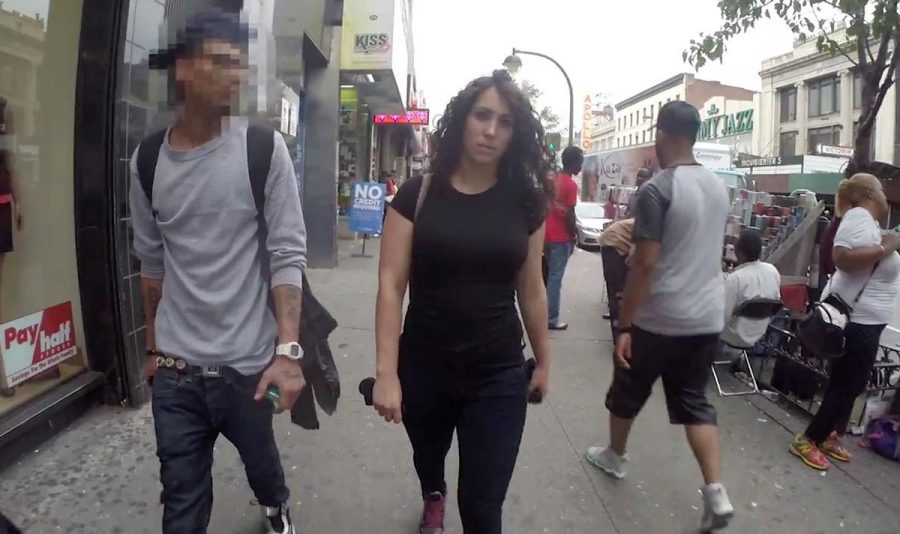10 hours of walking
The conversation about respecting women as more than sexual objects which began on YouTube has practical applications to the Biola campus.
November 11, 2014
Recently the nonprofit group Hollaback! released a video titled 10 Hours of Walking in NYC as a Woman that received nearly 32 million views in three days.
It shows GoPro footage of actress Shoshana Roberts determinedly walking through the streets of NYC in jeans and a t-shirt receiving a flurry of over 100 cat-calls and other forms of street harassment over the course of a 10 hour period.
Hollaback! describes itself as “A nonprofit which created a movement to end street harassment” particularly focusing on the experiences of minorities, women and those who identify as LGBT. With such a broad mission statement, viewers immediately began questioning the organization’s definition of “street harassment” and their motive behind the video.
While the video received backlash for many reasons, the majority centered around the claim that calls like “Hey baby” are not technically harassment. Additionally, some viewers criticized the video for only portraying Hispanic and black men as the offenders. None of the catcallers in the video were white men.
As far as the first critique goes, the remarks in the video seem to rely almost entirely on context. A “Hey girl” from your friend across the caf and a “Hey girl” from an unknown man on the street corner represent two completely different things. While I do agree that the intentions of some remarks in the video merit questioning, the threatening interpretations of other examples in the video seem substantially more concrete.
Secondly, I do not believe that the video was intentionally racist. In an interview, director Rob Bliss explains how the video’s editing process forced them to make cuts based on content, not race. While the topic of race does need careful handling and attention, I think that viewers became too easily distracted by the video’s racial aspect and missed the real message.
Yes, this video seems to show men objectifying women. Sadly though, this issue roots itself deeply in our culture. Even since coming to Biola I have experienced this objectification in entirely new ways with many of my male peers making sexual comments and crude jokes after realizing that I am a twin. I had never experienced this issue before coming here and I attended a public high school.
For me this points to a larger problem of discrimination within our culture, for women and everyone else. I could complain all day about people not taking me seriously because I am a twin, or because I am a blonde female, or a Christian, or a young person or whatever else. Complaining alone will not change anything. Getting out there, living my life and proving those people wrong will change it.
With the rampant discrimination that appears to corrode our culture, I think that Christians need to take a step back and pause. “It is a typical day, and it doesn’t even illustrate everything that happens,” Roberts said in an interview. “It doesn’t show the times in the past that … my side has been squeezed. It brings up memories in my past, too. I’ve experienced sexual assault, unfortunately, in my past.”
No, catcalling is not right. Part of Hollaback!’s movement includes getting people to vocalize their experiences so that more people will start to understand that discrimination, even in the seemingly harmless form of a catcall, can have a deeply harmful impact. Part of this movement, however, must start with us.
By accepting that someone acted poorly, in the case of catcalls, and by deciding to not let it dictate the way we live our lives allows us to decrease the effectiveness of that discrimination. But the individual must decide how to walk the fine line between pushing against inappropriate behavior and letting something roll off one’s back.
In this case of street harassment, the stand taken by “10 Hours” shows that by stopping discrimination on a smaller level, we can work to prevent it on a larger level.







